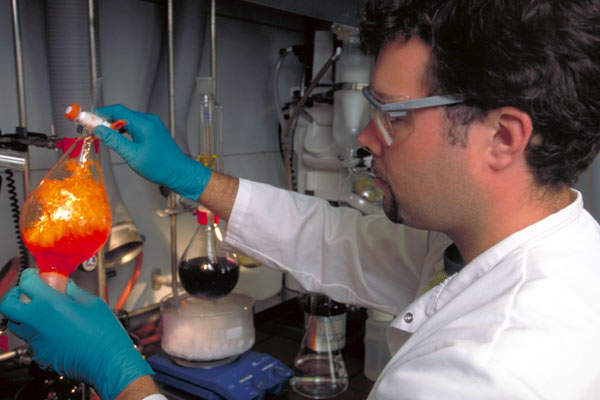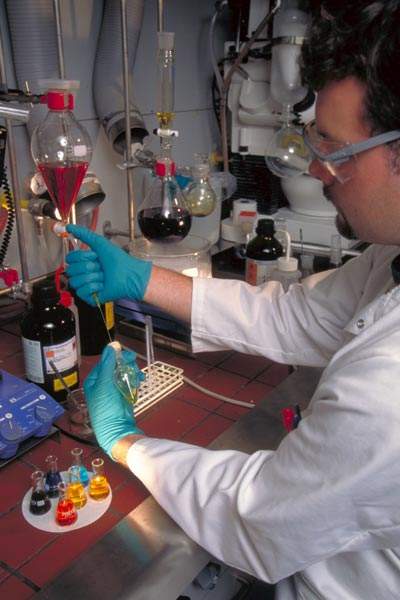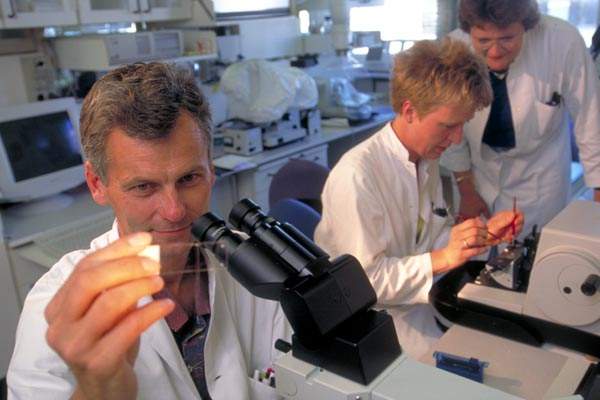Under development by Novozymes A/S, the Danish biotechnology company, plectasin NZ2114 is a novel antimicrobial peptide. It has yet to enter clinical development but pre-clinical studies suggest that it possesses potent bactericidal activity against gram-positive pathogens.
Its excellent penetration into cerebrospinal fluid (CSF) suggests potential in the treatment of CNS infections caused by gram-positive pathogens such as pneumococcal meningitis.
Combating the rise in antibiotic resistance
In an era of rising rates of bacterial resistance to commonly used antibiotics, new agents are urgently needed to treat bacterial infections effectively and halt the spread of resistant strains. This need is arguably greatest in the hospital environment where rates of bacterial resistance are highest.
Today the threat of resistance is posed by gram-positive and gram-negative pathogens. Important examples include methicillin-resistant S. aureus (MRSA) and other multi-resistant gram-positive cocci, Clostridium difficile and extended-spectrum beta-lactamase (EBSL) producing gram-negative pathogens such as Acinetobacter baumannii, Pseudomonas aeruginosa and E. coli.
Although still in early-stage development, defensins represent an exciting new approach to combating antibiotic resistance. They are peptide antibiotics that are endogenously produced by certain animal and plant cells. This entirely new class of antimicrobial agents have potential broad-spectrum activity against bacteria, including strains resistant to conventional antibiotics, fungi and viruses.
Novozyme’s plectasin NZ2114 is the first defensin-type antimicrobial peptide to be isolated from a fungus, the saprophytic ascomycete Pseudoplectania nigrella.
Plectasin NZ2114 – preclinical data
Novozyme’s plectasin variant NZ2114 appears especially active against gram-positive bacteria. Pre-clinical studies show it is effective against Streptococcus pneumoniae, exerting bactericidal effects in experimental models of pneumococcal peritonitis and pneumonia.
It has also demonstrated potent bactericidal effects in experimental pneumococcal meningitis model where it was compared with ceftriaxone. In this model, plectasin NZ2114 achieved significantly higher penetration into the CSF of inflamed meninges compared with controls (non-inflamed meninges). In comparison with ceftriaxone, treatment with plectasin NZ2114 produced a significantly greater reduction in CSF bacterial concentration as well as complete bacterial eradication in some cases (sterile CSF).
These encouraging preliminary findings bode well for future clinical studies assuming this new antimicrobial proves safe and well tolerated.
Collaboration with Sanofi-Aventis
At the end of 2008, Novozymes A/S signed a global licensing agreement with Sanofi-Aventis for the further development and marketing of plectasin NZ2114 as a treatment for severe gram-positive bacterial infections. This represents the first drug candidate the company has out-licensed for clinical development.
Through this agreement, Sanofi-Aventis gains exclusive rights to development, registration and commercialisation of plectasin NZ2114. Its interest in this novel agent is said to stem from the fact that defensin antimicrobial peptides may have activity against bacteria that are commonly resistant to conventional antibiotics.
Both companies will be involved in commercial-scale manufacturing of plectasin NZ2114, which will use Novozymes’ proprietary expression technology.
Marketing commentary
Antibiotics are often considered the poor relation in the field of drug research. Only three new antibiotic classes were approved between 1960 and 2000. Despite this seemingly gloomy scenario, the past decade has seen some important new additions to the range of antibiotics available to treat serious bacterial infections.
These have included not only new antibiotics from existing classes but also some from entirely new classes of antibiotics such as the glycylcyclines and licopeptides. The defensin antimicrobial peptides too represent a potentially important new class of antimicrobial agents, albeit still in the very early stages of development.





